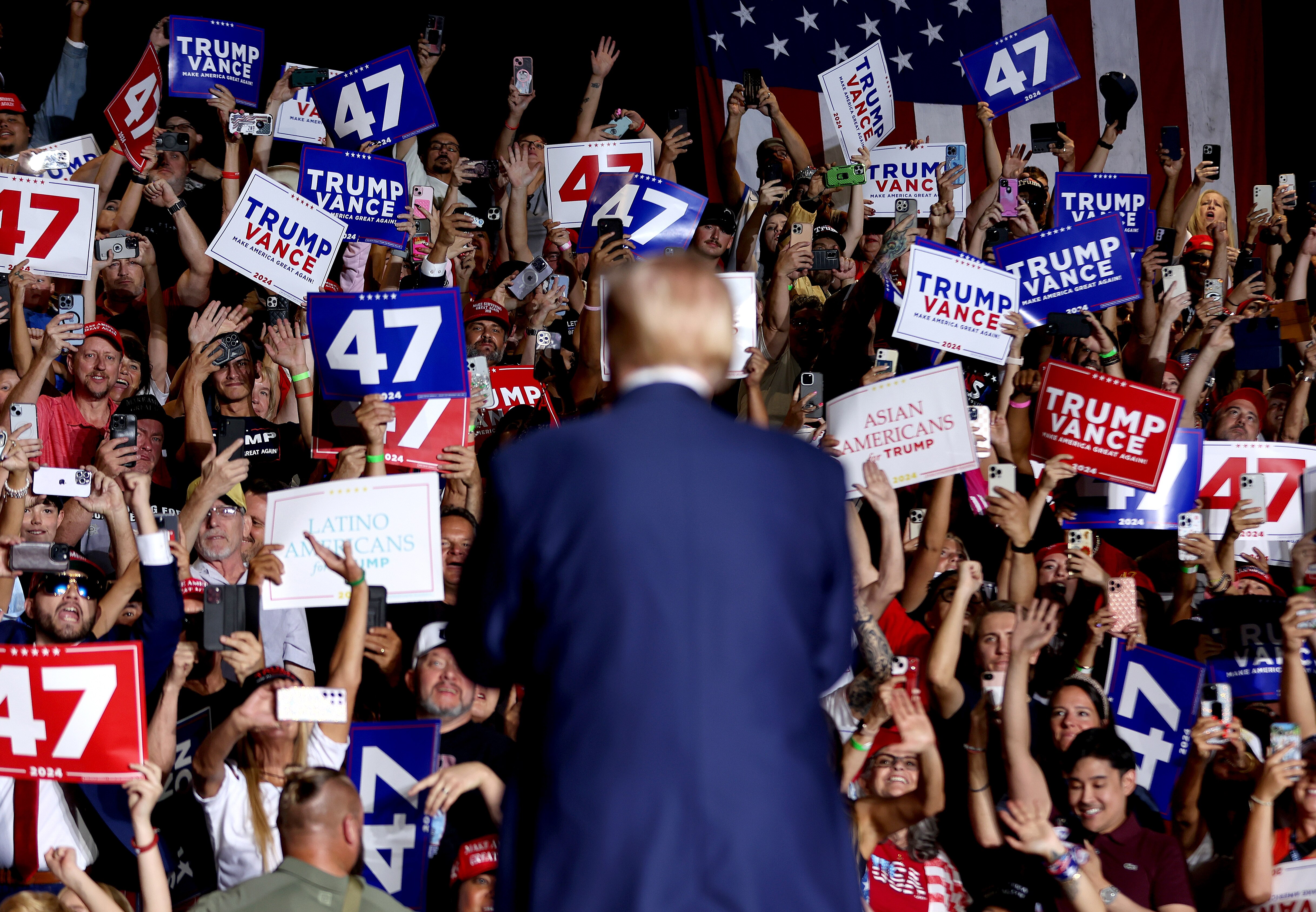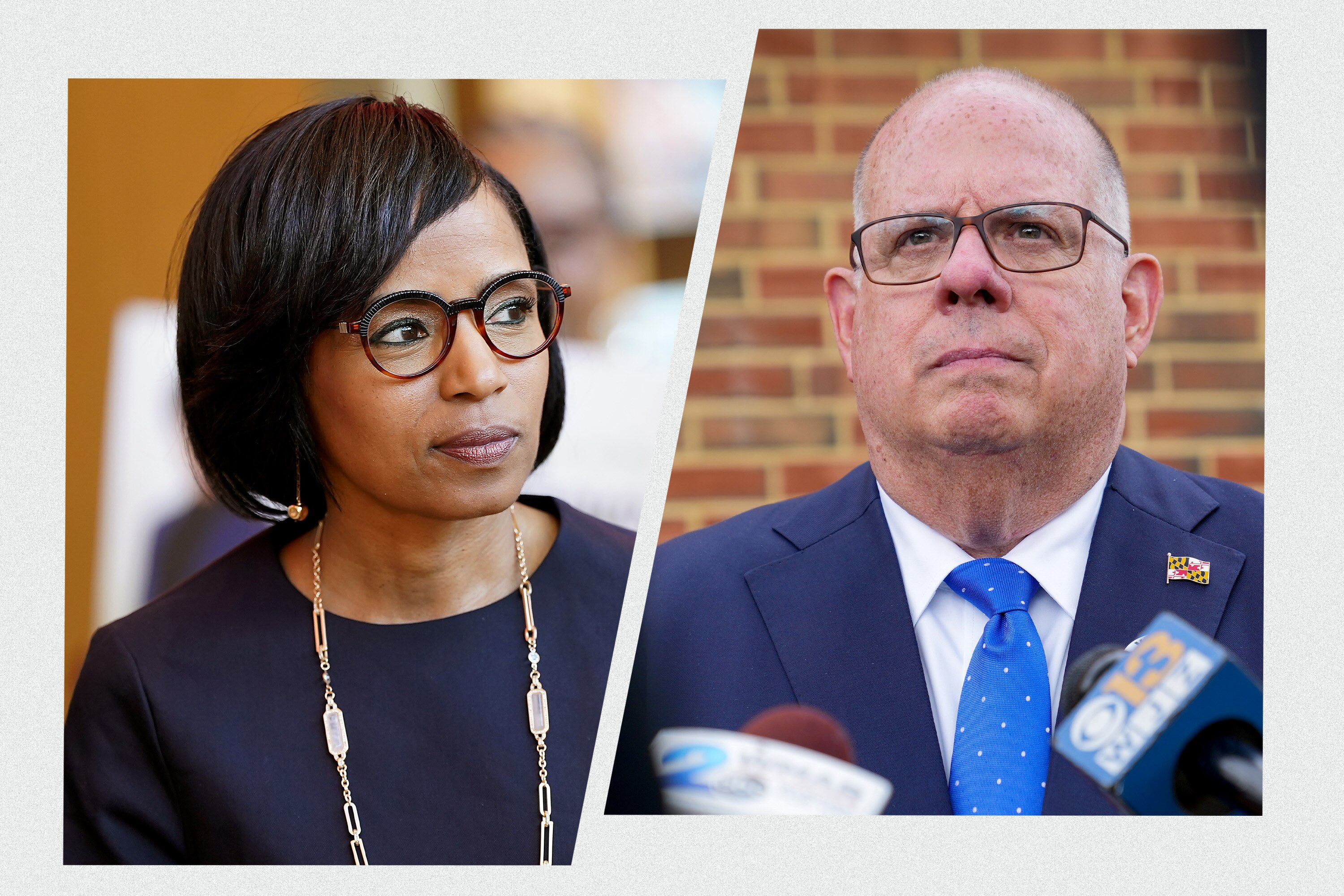CURRENT EDITION: baltimore (none)🔄 Loading BlueConic...EDITION HISTORY: No changes tracked
🔵 BlueConic: ___🔗 Query: ___✏️ Composer: ___
What’s next for Larry Hogan? Despite Senate loss, ex-gov has options
Former Gov. Larry Hogan hinted that this year’s Senate race isn’t the last we’ve seen from him, saying: “Our work and our commitment to a brighter future and a better path forward will continue.”
4 things we learned from election night results in Maryland
Being popular doesn’t guarantee victory, and other lessons from Tuesdays election results.
Angela Alsobrooks makes history as Maryland’s first Black Senator
Maryland voters made history on Tuesday, voting to send Angela Alsobrooks to Washington as the first Black woman to represent the state in the U.S. Senate.
Larry Hogan decides not to decide, and skips voting for president
The Republican has a history of making alternative choices when it comes to voting for president.
With US Senate seat on the line, Alsobrooks and Hogan make their final pitches to voters
The candidates for Maryland’s open U.S. Senate seat packed their final full day of campaigning with events and stops to persuade voters, thank volunteers and rally supporters. On Tuesday, they’ll find out who wins.
Surge in Maryland’s unaffiliated voters could reshape future elections
The shift likely has major implications on who is nominated in future elections as more voters opt out of participating in closed primaries and partisans gain power.
Nearly 1 million Marylanders cast ballots during early voting
All told, between early votes and returned mail ballots, more than 1.56 million of the state’s 4.2 million voters have already voted for a turnout of 37%.
Former Gov. Hogan’s vote for president? Sounds like nobody at all.
In 2016, Hogan voted for his father. In 2020, Hogan voted for the late President Ronald Reagan.
In video, Rep. Andy Harris backs plan to assign Trump electors in hurricane-damaged North Carolina
Maryland’s U.S. Rep. Andy Harris, the new chair of the far-right House Freedom Caucus, is seen in a video offering support for a legally questionable plot to award electoral votes in North Carolina to Republican Donald Trump due to disruptions to voting caused by Hurricane Helene.
U.S. Senate poll tracker: Alsobrooks lead over Hogan steady in Washington Post poll
Angela Alsobrooks leads Larry Hogan, 54% to 40%, in a poll from Emerson College as in-person voting approaches.
Alsobrooks’ past clashes with Prince George’s colleagues have shaped US Senate race
As Angela Alsobrooks runs for the U.S. Senate, many of her past critics have become supporters.
Jobs, Key Bridge and FBI HQ: What a second Trump term could mean for Maryland
Another Trump presidency could come with cuts to federal jobs in the state, questions over funding for key transportation projects, less cooperation on preventing gun violence and uncertain effects on the state’s budget.
Complaint alleges pro-Hogan super PAC broke campaign finance law
A prominent “donate” button on the Maryland’s Future webpage goes directly to a fundraising page for Hogan’s campaign committee, which a Montgomery County woman argues violates the law.
Get ready for more TV ads: Pro-Hogan super PAC has $16M in the bank
The campaigns of Angela Alsobrooks and Larry Hogan and super PACs have combined to raise almost $50 million to spend on Maryland’s nationally watched Senate race.
U.S. Senate debate included 5 topics you haven’t seen discussed in campaign ads
Maryland’s U.S. Senate candidates Angela Alsobrooks and Larry Hogan didn’t tread much new ground in their debate Thursday, but we did learn a few things.
Hogan’s past affordable housing votes questioned as conflict of interest
While he was governor, Hogan voted five times to approve subsidies for affordable housing developers that his firm may have worked with in the past.
U.S. Senate race: Hogan, Alsobrooks sharpen attacks in televised debate
Both candidates used the debate as a chance to promote their records while arguing the other is the poor choice for Marylanders in a hyper-partisan political environment.
Alsobrooks, Hogan to face off in — possibly only — U.S. Senate debate Thursday
The candidates will record a 60-minute debate at Maryland Public Television in the afternoon that will be broadcast later in the evening.
US Senate candidates Hogan, Alsobrooks navigate complex Middle East policy
The scale of violence in the Middle East presents a complex policy challenge for the two candidates who hope to be Maryland’s next U.S. senator.
Meet the outside groups bombarding you with ads about Maryland’s Senate race
Larry Hogan and Angela Alsobrooks decry the advertising blitz, even as they benefit.












